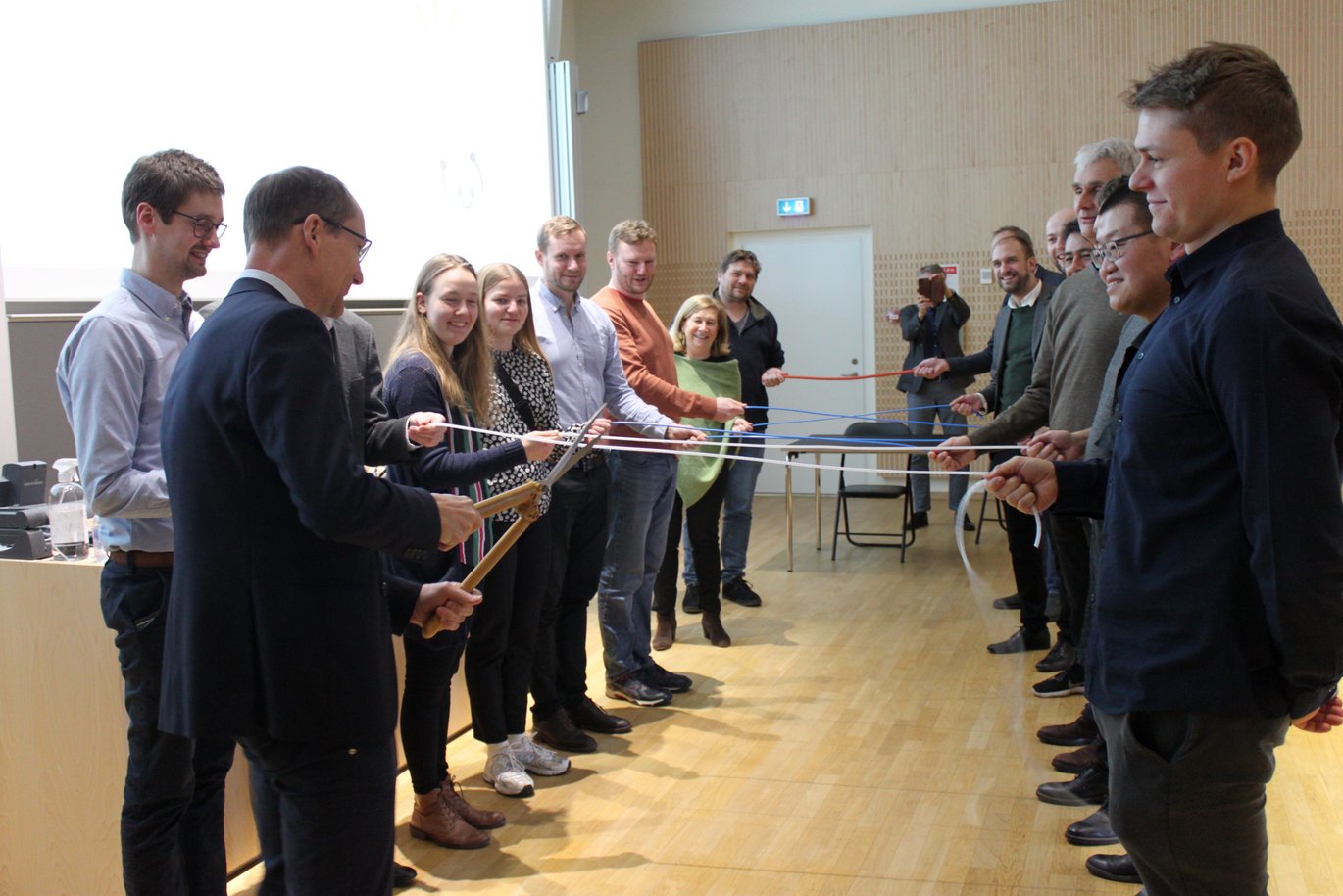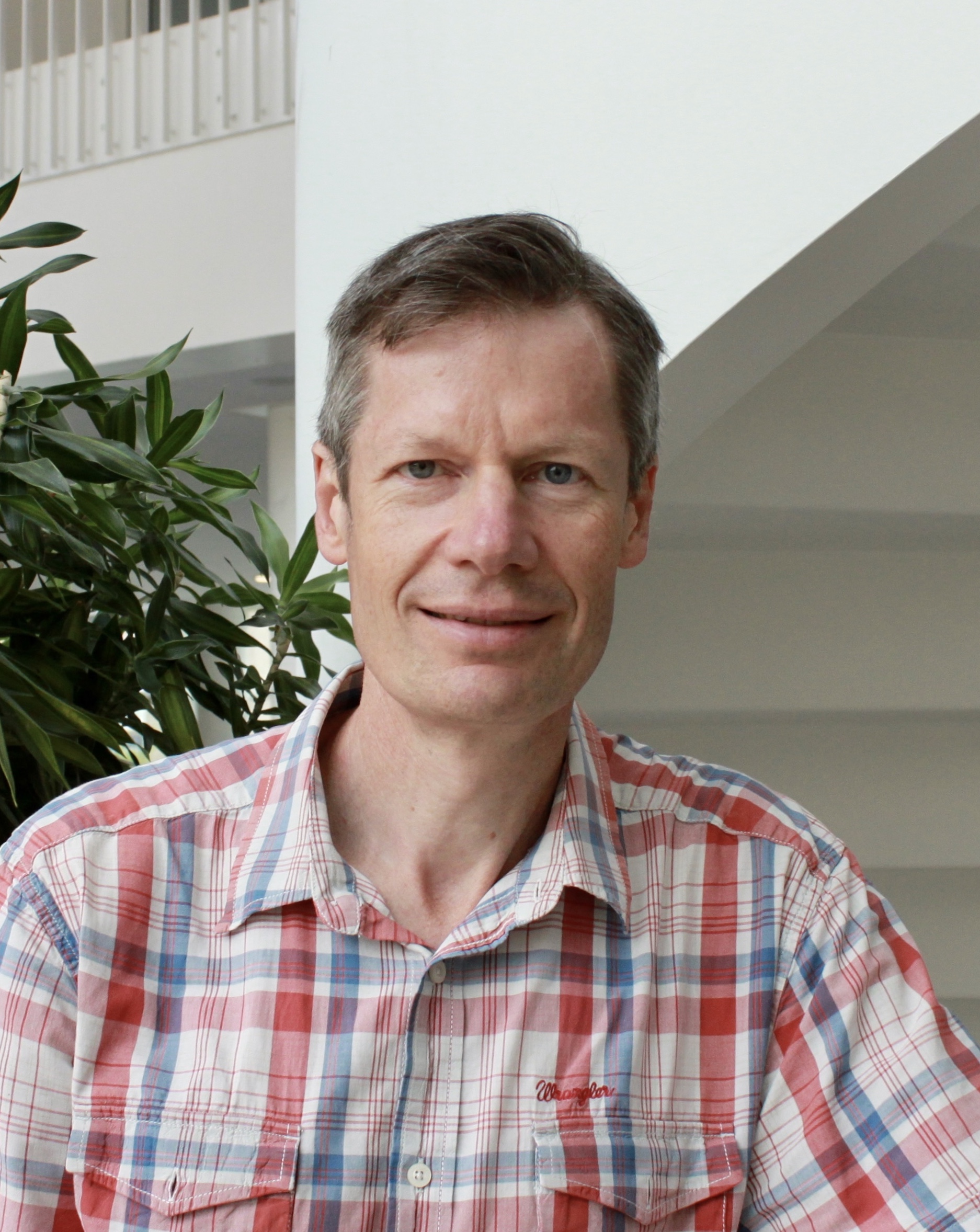Cut-chemistry for a greener world
We produce more than 400 million tonnes of plastic in the world every year. Plastic has many good functions, but we have not yet solved the big problem: What do we do with all the plastic we finish using? On January 18 a new centre for plastic research, En'Zync, were inaugurated at iNANO.


On January 18, 2023, colleagues and collaborators were invited to the inauguration of the new "Centre for enzymatic deconstruction of thermoset plastics for a sustainable society" (En'Zync), which is funded by the Novo Nordisk Foundation with DKK 57 million. The project aims at finding solutions to breaking down some of the million tonnes of hard plastic, which is difficult to break down and is piling up in the oceans, is buried or burnt.
As a symbol of the first step of their methods, Dean Kristian Pedersen were equipped with a gilded hedge shear for cutting strings of plastic waste, held by the project team members. The project team will look for enzymes that can cut and break down plastic efficiently. Some enzymes have already naturally developed the ability to break down certain types of plastic and Daniel Otzen therefore believes that the enzymes can be the key to solving the plastic crisis.
"The centre will be a game changer for the research activities of the participating researchers, and we hope, of course, that we can make a significant difference to plastic research. We’ll spend a lot of time learning about the material and finding solutions. This is will be an important and very ambitious project, and it will become a state of mind for us rather than just a project,"
Thank you to the Novo Nordisk Foundation for believing in the project.
It will be very exciting to follow the solutions that Professor Daniel Otzen and the rest of the En'Zync team will create, which can contribute to dealing with the plastic crisis.
Link to website fo the En'Zync research center: https://enzync.au.dk/
For further information, please contact
Professor Daniel Otzen
Interdisciplinary Nanoscience Center (iNANO)
Department of Molecular Biology & Genetics
Aarhus University
Email: dao@inano.au.dk